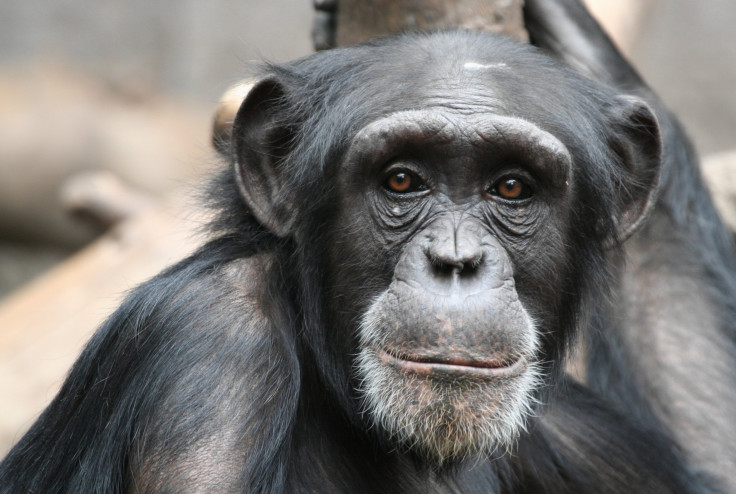Herpes Was Passed From Chimps To Humans, Long Before Modern Man Or Chimp Ever Walked Earth

Herpes is one of the most common viruses on the planet, with scientists estimating that about 67 percent of the human population is infected with at least one type of the virus. So where did this super-prevalent virus come from? Recent evidence suggests that it has been infecting our ancestors before they even evolved into modern-day humans and most likely originated in ancient chimpanzees.
Wait, So When Did This Happen?
A team of scientists from San Diego AntiViral Research Center in California released a study suggesting that ancient humans were herpes-free until they encountered chimpanzees. Now, before you start imagining some strange scenes of bestiality, this transference occurred over a million years before the rise of modern humans, Live Science reported. The researchers found that the herpes simplex virus 1 (HSV-1) infected hominids before their evolutionary split from chimpanzees somewhere around six million years ago. As for herpes simplex 2 (HSV-2), it was most likely transferred from chimpanzees to human ancestors more recently, about 1.6 million years ago, Live Science reported. This transmission between species was apparently very common in the ancient days. According to the study’s author Joel O. Wertheim, “Before we were human, there was still cross-species transmission into our evolutionary lineage.”
Bad News For Today's Teens
Today the HSV-1 virus is the most common cause for cold sores around the mouth, while HSV-2 usually causes sores around the genital area. Both viruses are non-exclusive and can infect any part of the body. Interestingly, humans are the only primate species that can be infected by both herpes viruses at the same time, Live Science reported. Unfortunately recent studies have shown that young people between the ages of 14 to 19 are more susceptible to contracting genital herpes caused by the HSV-1 than any other previous generation. As many as 60 percent of all genital herpes cases in young Americans are now caused by the ‘cold sore' virus, Live Science reported. This is partly the result of many young people not being exposed to the virus earlier in childhood, because of improved living conditions and better hygiene. Blood tests in teenagers taken between 2005 and 2010 showed that they are less likely than previous generations to have antibodies against HSV-1, making them more prone to contract HSV-1 once they become sexually active.
Animals Give Us Viruses All The Time
The new findings will help scientists better understand how species-to-species transmission works. “Understanding how and when we acquired viruses that currently infect us can give us perspective on future, potential cross-species transmission events that would lead to the introduction of new human viruses," Wertheim told Live Science. Diseases passed to humans from animals are called zoonoses and they are more common than you might believe. Some of the most recognized zoonoses are: pubic lice, given to us from gorillas (Calm down, scientists believe we got these from sleeping next to gorillas, not with them!); Ebola, given to us by bats; and of course, HIV/AIDS, which was also transferred by chimpanzees about 100 years ago.
Source: Wertheim JO, Smith MD, Smith DM, Scheffler K, Kosakovsky SL. Evolutionary Origins of Human Herpes Simplex Viruses 1 and 2. Molecular Biology and Evolution. 2014.



























